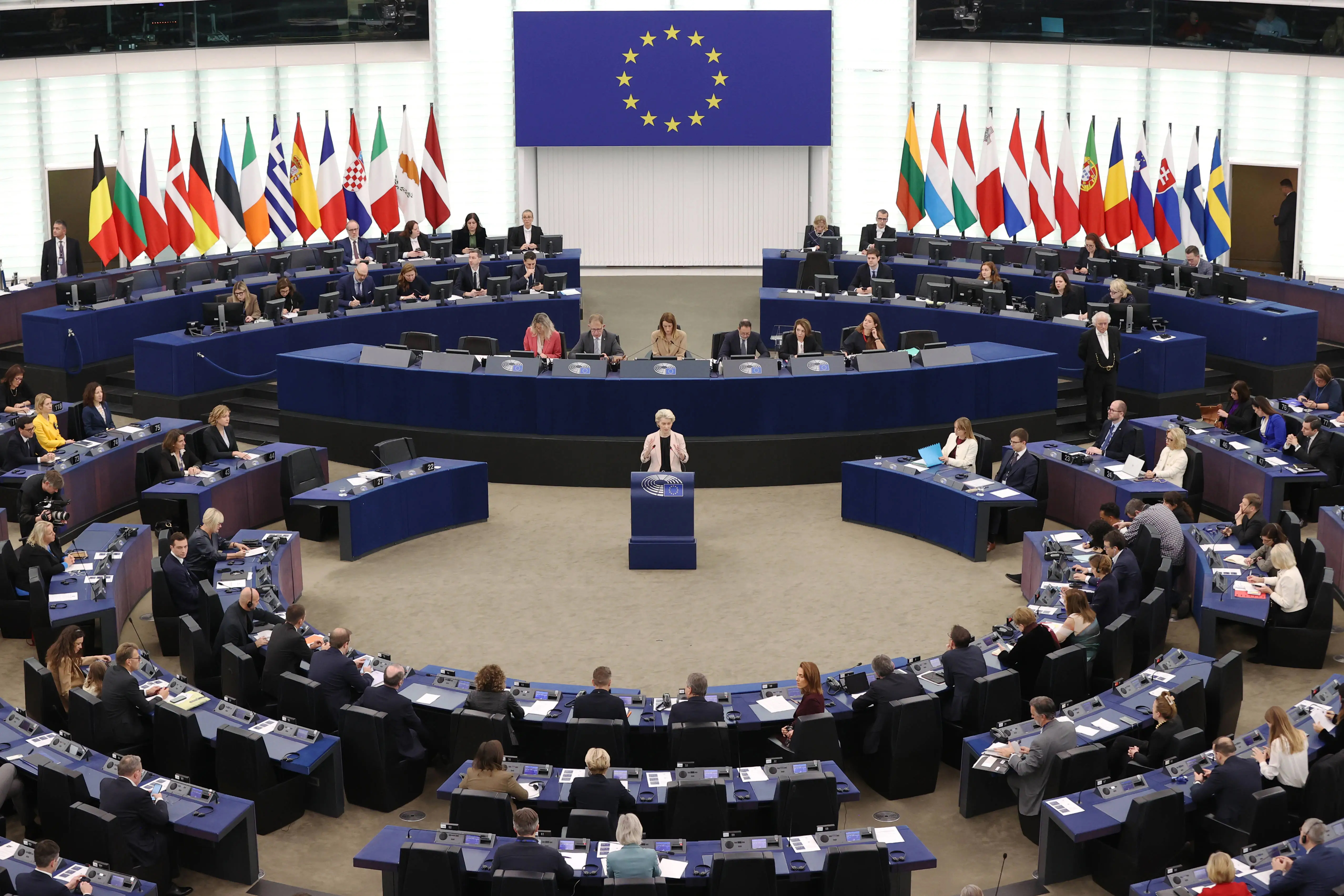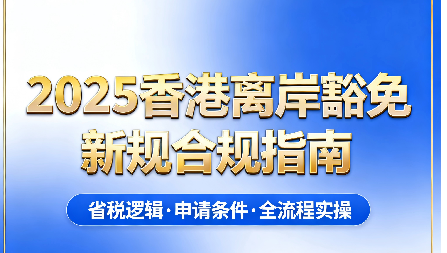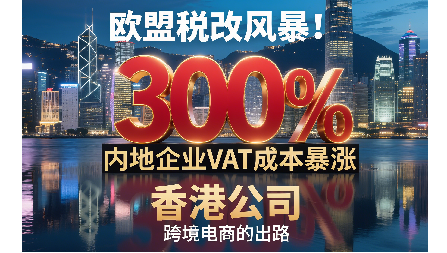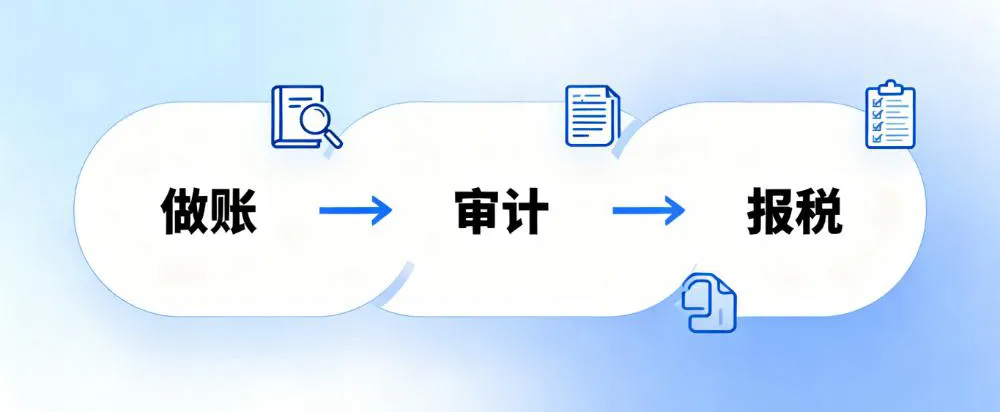2025 Hong Kong Offshore Exemption New Regulations Compliance Guide: Tax-saving Logic, Application Requirements and Full Process Practical Operations

In the dire situation of a 300% increase in costs, a compliant and efficient path to survival is opening up.
In the hall of the European Parliament, with an overwhelming vote of 619 in favor and 26 against, the decades old duty-free policy for imported goods under 150 euros has officially come to an end. This new regulation, which will take effect by the end of 2025, marks the complete end of the era of "tariff exemption dividends" for cross-border e-commerce.
For Chinese cross-border sellers, this change means unprecedented challenges: all B2C packages entering the EU, regardless of their value, will be subject to a processing fee of at least 2 euros (0.5 euros for overseas warehouse packages), and the platform will be defined as a "presumed supplier" and will be responsible for withholding taxes and tax inspection risks.
Life and death test: the "triple strangulation" of cost, compliance, and competition
- Low priced products are the first to bear the brunt. Taking electronic products priced at 40 euros as an example, which originally enjoyed tax-free benefits, the comprehensive tax rate soared to 35% -42% under the new policy, and the after tax cost directly jumped to 54 euros, completely overturning the original parity model.
- According to EU officials, 30% of small and medium-sized sellers may be forced to exit the market due to zero profits, and low value categories such as clothing and 3C accessories will suffer the most severe impact.
- The cost of compliance has increased synchronously. The cost of registering a seven country VAT (Value Added Tax Number) for domestic companies has skyrocketed from an average of 15000 yuan per year to 20000 to 30000 yuan, with an increase of up to 300%.
- Sellers are required to declare separately based on the actual receiving tax rates of each member country (19% in Germany and 20% in France), and those who make incorrect declarations will face high fines ranging from 20% to 40%.
- What's even more serious is that the advantages of local enterprises in the EU are highlighted. They only need to pay value-added tax without import tariffs, and their cost structure is 15% -25% lower than that of Chinese cross-border sellers, greatly weakening the traditional price advantage of Chinese goods.
Breaking Key: Strategic Value of Hong Kong Companies Highlighting
- In the face of this life and death test, more and more sellers are realizing that registering a Hong Kong company has become a key pivot to breaking the deadlock.
- The advantage of tax cost restructuring is obvious. By registering a seven country VAT through a Hong Kong company and leveraging the package services of professional service providers such as EuroTax, the annual fee is only 8000-12000 yuan, saving 60% of the cost compared to directly registering a domestic company.
- The corporate income tax rate in Hong Kong itself is only 16.5%, and the principle of territorial taxation is implemented - only profits originating from Hong Kong need to be taxed in Hong Kong.
- The efficiency of funds has significantly improved. Hong Kong companies support free exchange of 12 currencies, and cross-border payments can be received within 3 days. The loan interest rate is as low as 3.5%, far lower than the cross-border loan interest rate in mainland China.
- Hong Kong bank accounts are not subject to foreign exchange controls in mainland China, achieving efficient global fund allocation.
- Dual benefits of brand premium and compliance hedging. The "Hong Kong" label has a high level of recognition in the European market, which helps to increase the average order value and repeat purchase rate. Hong Kong companies can easily apply for EU trademarks, laying the foundation for brand transformation.
- Isolating business risks through Hong Kong companies can effectively reduce GDPR compliance costs and achieve flexible deployment across multiple regions.
Transformation Window: The Golden Three Years of 2025-2028
- The EU tax reform marks the end of the era of "wild growth" of cross-border e-commerce, and the policy transition period from 2025 to 2028 is the golden window for corporate strategic adjustment.
- The process of registering a Hong Kong company has been highly digitized: name verification takes 2 hours to complete, online submission takes 1 day for approval, and the company certificate can be obtained and a multi currency account can be opened in as fast as 3 days.
- In 2025, the Hong Kong government will strengthen its support for small and medium-sized enterprises by providing a BUD special fund of up to HKD 7 million for brand building and market expansion.
- Transforming compliance pressure into supply chain efficiency and brand premium is the key to breaking through and revitalizing in the European market. The enterprises that have completed the Hong Kong company architecture, supply chain restructuring, and brand upgrading first will establish insurmountable competitive barriers in the post tax era.
- Crisis has always been a catalyst for the evolution of business ecology. When the protective umbrella of 150 euros is retracted, the true journey of global brands has just begun.








